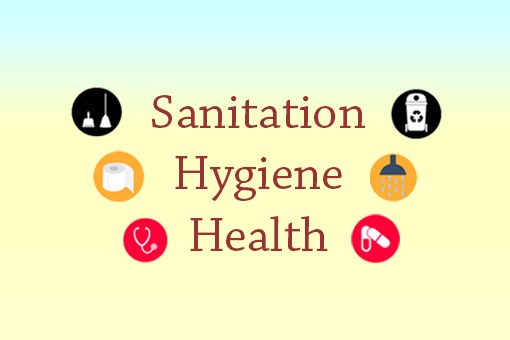"Cleanliness is next to Godliness"
– Mahatma Gandhi
Sanitation and hygiene are two important components related to health. At an individual level and also at a collective level, both become crucial in disease prevention, reducing mortality rate, improving quality of life, better health demographics and building a robust society where members are capable of fully realizing the opportunities of life.
Good sanitation practices such as proper waste disposal, personal hygiene habits, avoiding open defecation & urination, construction of public toilets, sanitation at home & work places are some of the ways for improving sanitation and building a clean and healthy society. In this context, proper education, alternatives to existing conditions, awareness programmes and adequate motivation to opt for healthier practices is significant.
MyGov Arunachal Pradesh invites you to share suggestions on how to increase community awareness and participation, and improve the quality of sanitation in both urban and rural areas in Arunachal Pradesh.

Alok Sahoo 5 years 9 months ago
Awareness is the only thing which should be given more focus & importance to make the society & people hygenic by nature & culture. Hygenic awareness must be made from grassroot level & heath system of the state muat be made moare robust with reach even to remotest of the place. Proper heath supervision of health services at all levels, basically at grassroot levels must be done to ensure the best quality. Reward method must be undertaken to imbibe the culture of healthy living among the people
V K TYAGI 6 years 1 month ago
sanitation, Hygiene and Health are important for a State and mankind.it is important for all citizens.
Bhawna 6 years 2 months ago
Until now, a number of innovative public health campaigns and programmes to improve health and hygiene have been implemented in India but more needs to be done. These include community-led public-private partnerships to improve access to toilets and awareness campaigns in schools and slums in both urban and rural sectors. There is an urgent need for more such campaigns all across India.
Bhawna 6 years 2 months ago
There need to be awareness campaigns for mothers and caregivers. Hand washing with soap at critical times is important for protecting the health of the whole family. By being a role model, mothers and caregivers can also help instill in their children healthy hygiene practices, which will serve them for life.
Bhawna 6 years 2 months ago
A good example of one such recent project was implemented by Save the Children in partnership with Harpic in New Delhi, India. More needs to be done about giving girls the knowledge and facilities necessary for good menstrual hygiene is key to their dignity, privacy, educational achievement and their health. Adolescent girls are empowered through improved menstrual hygiene management.
Bhawna 6 years 2 months ago
Schools provide an excellent opportunity for children and parents to learn about healthy hygiene practices. There is an urgent need for adequate, well-maintained water supply and hygiene facilities which include proper toilets and hand washing basins in schools all across India. Inadequate water supply and sanitation in schools are health hazards and affect school attendance, retention and educational performance
Bhawna 6 years 2 months ago
According to the UNICEF, hand washing with soap, particularly after contact with excreta, can reduce diarrhoeal diseases by over 40 per cent and respiratory infections by 30 per cent. Hand washing by birth attendants before delivery has been shown to reduce mortality rates by 19 per cent while a 4 per cent reduction in risk of death was found if mothers washed their hands prior to handling their newborns.
Bhawna 6 years 2 months ago
Poor wash causes diarrhoea, which is the second biggest cause of death in children under five years. According to the Public Health Association, only 53 per cent of the population wash hands with soap after defecation, 38 per cent wash hands with soap before eating and only 30 per cent wash hands with soap before preparing food. Only 11 per cent of the Indian rural families dispose child stools safely. 80 per cent children’s stools are left in the open or thrown into the garbage.
Bhawna 6 years 2 months ago
The importance of public health programmes on hygiene and prevention tools
There are many organisations and public- private collaborations working to improve access to toilets, improving drainage facilities and creating awareness through education campaigns on the importance of preventive tools such as hand washing. Hand washing with soap is among the most effective and inexpensive ways to prevent diarrhoeal diseases and pneumonia.
Bhawna 6 years 2 months ago
there is a very high risk of microbial contamination (bacteria, viruses, amoeba) of water which causes diarrhoea in children. Also, diarrhoea and worm infection are two major health conditions that affect school children impacting their learning abilities.